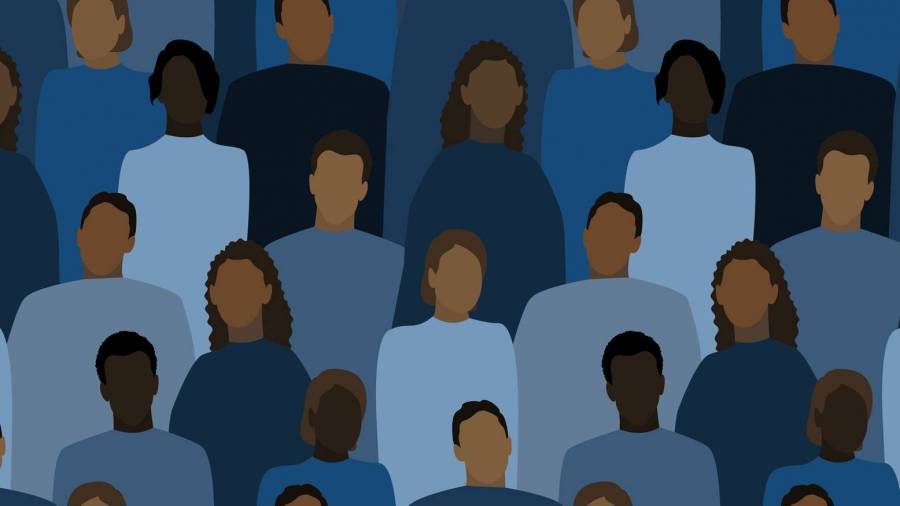The raw deal that won’t go away for BAME communities
The housing sector has a key role to play in tackling racial inequality in the UK

STRATEGY
Image: Istock

Abdul A Ravat
Vice-Chair, Manningham Housing Association
Before the death of George Floyd in America and the Black Lives Matter campaign that has resounded around the world, COVID-19 was already highlighting just how unequal our society remains. The pandemic has exposed disproportionate rates of transmission and fatalities among certain ethnic groups. The growing levels of disparity that BAME communities face – particularly as we confront an unprecedented economic downturn – have fuelled simmering tensions over racial injustice in the UK.
Enough is enough and things have to change. But will they?
Housing’s opportunity
For housing there is an opportunity for change. This is long overdue as the system continues to perpetuate disparities and inequality in housing provision and access to BAME communities who are:
- over-represented in insecure private rented sector accommodation;
- more likely to be overcrowded and experience poor housing conditions impacting health;
- three times more likely to be over-represented in the most deprived local authority areas;
- three times more likely than white households to experience homelessness;
- twice more likely to be unemployed.
The UK BAME housing sector has been an undoubted success in fostering BAME leadership and directly meeting the housing needs of hundreds of BAME households. It can boast of having 66,000 homes with a total asset value of nearly £2 billion. Yet it only represents a mere 3% of the total social housing sector and is too small to fully address the current and historic needs of the BAME population on their own.
There is also an uncomfortable truth that larger players are drifting from their social purpose and many have become quasi-developers dependent on private units and homeownership, at the expense of providing truly affordable housing solutions.
“The UK BAME housing sector can boast of having 66,000 homes with a total asset value of nearly £2 billion. Yet it only represents a mere 3% of the total social housing sector ”
Role for regulation
We need an honest and frank conversation to examine whether the Regulator of Social Housing effectively assesses if all actors make a real contribution to addressing inequalities for BAME communities. Current regulation does not sufficiently challenge and tackle disparities in governance, staffing, procurement and investment that contribute to meeting BAME communities’ needs. It focuses principally on the economic health of providers, irrespective of whether they meet the needs of the very communities they were set up to address.
But then who regulates the regulators and the investors of new funding? Homes England has undergone a massive recruitment drive, which has continued during lockdown. Yet is anyone internally, within government or externally asking if that recruitment has created a culture and a workforce that is truly representative of wider society. There seems little data, transparency or scrutiny.
Investment incentives
The housing sector has presented a strong case to the government that it can make a significant contribution to the economic recovery post-COVID-19. Any funding settlement has to therefore address long-standing deficits in delivery across all tenures. This should include for older people, those who require supported housing and BAME communities.
With the vast sums of public funding and the private funds it unlocks, it is time to measure outcomes and ask some simple questions. What investment is going directly to meet the housing and support needs of BAME communities which COVID-19 has so vividly exposed?
To achieve parity, the next development prospectus for both Homes England and the Greater London Authority should be top-sliced. These monies should be used to increase housing supply to BAME communities, with specific targets set for delivery which is reported like other key programme areas, i.e. rural delivery, and level of funding on brownfield sites. To address community needs and historic under-provision, this could mean 20%+, and more in London.
More blogs from Campbell Tickell on tackling racial inequality:
Rejecting racism in all its forms
Greg Campbell reflects on his own journey to anti-racism
The movement has started: are you in?
Sade Joseph outlines a call to action following the Black Lives Matter demonstrations.
A personal reflection from Radojka Miljevic on the death of George Floyd.
Subject to scrutiny
There is a need for greater scrutiny regarding the use of public land, which is essential to accelerate housing delivery. Homes England’s land hub needs to demonstrate that it addresses inequalities in BAME communities. This should apply to other key programmes such as Home Buy (and First Buy if it proceeds) and the Small Sites Programme. They need to reflect local context as the current thresholds make it virtually impossible for BAME housing associations (and others) to bring forward sites that directly meet housing needs.
Pivotal in place-making
Housing associations have a pivotal role to play in local economic and social recovery post-COVID-19. But they need to also address anomalies in neighbourhood management approaches arising from asset disposal decisions by some registered providers. There are currently too many examples where mainstream associations are divesting themselves of stock and assets in predominately diverse localities and effectively transferring the proceeds into non-BAME localities.
The impact spirals in areas when such properties are bought by private landlords who then maximise lets, creating neighbourhood problems for families resident there. The local community is never consulted but suffers the consequences. This should change and a more robust approach established that ensures ethical property disposals and clear consideration afforded to the impact on the area, for communities and other housing providers (often BAME associations).
Build back better
The need to build more affordable housing is palpable and could kick-start the economic recovery. Yet to avoid past mistakes, a concerted effort and plan is needed to address historic inequalities of access and funding, to meet the needs of BAME communities. This has to be the moral duty of the whole sector if it is serious about its sympathy and support for #BlackLivesMatter.


